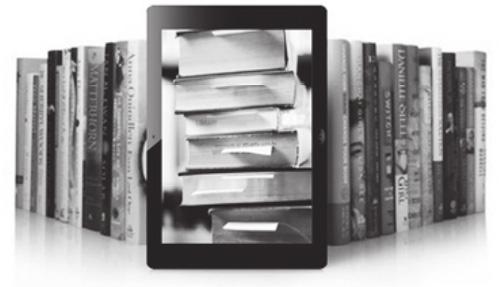你阅读的方式
By Michael Grothaus
Its no overstatement that digital mediums have taken over every aspect of our lives. We check what our friends are doing on the glowing screens in our hands, read books on dedicated e-readers, and communicate with customers and clients primarily through email. Yet for all the benefits digital mediums have provided us, there has been a growing body of evidence over the past several years that the brain prefers analog1 mediums.
Studies have shown that taking notes by longhand2 will help you remember important meeting points better than tapping notes out on your laptop or smartphone. The reason for that could be that “writing stimulates an area of the brain called the RAS (reticular activating system), which filters and brings clarity to the fore the information were focusing on,”3 according to Maud Purcell, a psychotherapist and journaling expert. If thats the case, and the analog pen really is mightier than the phone, its no wonder some of my colleagues have ditched smartphones for paper planners.
But its not just recording our thoughts on an analog medium that appears to be better for us. Absorbing information from analog mediums now appear to be better for memory retention4, and thus, productivity. In a study conducted by Anne Mangen, PhD, a professor at the Reading Center at the University of Stavanger, Norway, the researcher gave participants the same 28-page mystery story to read either on an Amazon Kindle or in print format. After the participants read the story, they were asked a number of questions about the text.
“We found that those who had read the print pocketbook gave more correct responses to questions having to do with time, temporality, and chronology (e.g., when did something happen in the text? For how long did something last?) than those who had read on a Kindle,” Mangen says. “And when participants were asked to sort 14 events in the correct order, those who had read on paper were better at this than those who had read on the Kindle.”
While this event has yet to be fully investigated and understood by scientists, Mangen, who now chairs E-READ, a European research network of interdisciplinary5 scholars and scientists researching the effects and implications of digitization on reading, says one explanation for the benefit of reading analog books may come down to something called metacomprehension deficit. “Metacomprehension refers to how well we are ‘in touch with, literally speaking, our own comprehension while reading,” says Mangen. “For instance, how much time do you spend reading a text in order to understand it well enough to solve a task afterwards?”
One study revealed that people think they are better at comprehending information when they read it on a digital screen. This resulted in those readers reading the text much faster than those reading the text in paper format. Yet despite spending less time reading the text, the digital readers predicted they would perform better on a quiz about the text than the people who read the text on paper. Yet when the digital and paper groups were tested, the paper groups outperformed6 the digital groups on memory recall and comprehension of the text. They also were closer to their test result predictions than the digital group was.
You Dont Need to Print off Every Email You Get
Books are one thing, but does our brain absorb information better if we read from other physical mediums, like newspapers and magazines? Not necessarily.
“Length does indeed seem to be a central issue, and closely related to length are a number of other dimensions of a text, e.g., structure and layout. Is the content presented in such a way that it is required that you keep in mind several occurrences/text places at the same time?”says Mangen. In other words, she says, complexity and information density may play a role in the importance of the medium providing the text.
“It may be that for certain types of text or literary genres (for example, page turners7), medium does not matter much, whereas for other genres(cognitively and emotionally complex novels, for instance), medium may make a difference to comprehension or to the reading experience. But this remains to be tested empirically8.”
In other words, unless people are sending you novel-length emails (which they shouldnt be), you dont need to go rushing to the print button, as reading short snippets9 of information on a screen probably doesnt hinder memory retention or comprehension.
Print and Digital Can Coexist Peacefully
With all things regarding the brain and human cognition, Mangen also stresses that it wouldnt be correct to proclaim that information gleaned10 from print is always going to be just as good, if not better, for memory and comprehension than digital.
“It is not—and should not be—a question of either/or, but of using the most appropriate medium in a given situation, and for a given material/content and purpose of reading,” she says, and notes that a “good starting point is to keep in mind that all media/technologies (old as well as new) have distinct user interfaces, and that the user interface of paper in some circumstances and for some purposes may support key aspects of reading(retention of complex information) or of study (writing notes in the margins) better than digital devices do.”
But for other purposes of reading, for example, presentations with audiovisual material, Mangen concedes a digital device like a tablet is obviously far superior.11 “There is no one-format/medium-fits-all solution (not even with respect to emails), but it will depend on a number of factors pertaining12 to the content/text, the reader, the purpose of the reading, the situation, etc.,” she says.
Slow Down When You Read Digitally
If you cant bear to give up digital books, you arent out of luck. As the study cited above mentions, like other digital readers, you probably think you are absorbing the information better than you actually are, and thus move through the book faster.
A simple solution to this is to simply slow down and take more time reading the material, and you might absorb the information just as well as those who naturally take longer to read a paper book.
如果说数字媒体已经占据了我们生活的方方面面,这话绝对没有言过其实。我们通过手中发光的屏幕来查看朋友们的一举一动,在专门的电子阅读器上阅读书籍,而且主要通过电子邮件与顾客、客户联系。然而,尽管数字媒体为我们带来了各种好处,但过去几年来越来越多的证据表明大脑偏好实物媒体。
研究表明,相比在笔记本电脑或者智能手机上敲敲打打,手写笔记可以帮助你更好地记住重要的会议要点。其原因可能是“写作刺激了一个叫做RAS(网状激活系统)的大脑区域,这一区域将我们正在关注的信息过滤,并使这些信息更加清晰可懂”,心理治疗师、记录专家莫德·珀塞尔解释道。如果真是这样的话,那么实物笔确实比手机更加强大,难怪我的一些同事把智能手机丢在了一边,改用纸质计划本。
然而,还不仅仅是将想法记录在实物媒体上对我们而言似乎更好。从实物媒体吸收信息似乎更适合记忆的留存,从而有助于提高生产率。挪威斯塔万格大学阅读中心教授安妮·曼根博士进行了一项研究,研究人员让参与者通过亚马逊Kindle或是纸质书阅读同一本28页的侦探小说。参与者阅读完毕后,他们会被问到一些关于文本的问题。
“我们发现纸质口袋书阅读者在回答与发生时间、时间长短和前后顺序相关的问题(例如,某事在文本中何时发生?持续了多长时间?)时,相比Kindle阅读者正确率更高”,曼根称。“当参与者被要求以正確的顺序对14个事件进行排序时,纸质阅读参与者要比Kindle阅读参与者表现好。”
虽然这一结果尚未得到科学家的充分研究和理解,现任E-READ(一个由研究数字化对阅读的直接和间接影响的跨学科学者与科学家组成的欧洲研究网络)主席的曼根表示阅读纸质书籍的好处或许可以归结为所谓的“元理解亏空”。“元理解指的是在阅读时我们究竟与自身的理解,从字面意思上来说,‘联系有多好,” 曼根说。“比如,你需要花多少时间阅读某个文本才能很好地理解它,以便之后完成某项任务?”
一项研究显示,人们认为自己通过数字屏幕阅读时,在理解信息方面表现更好。这导致那些读者在阅读时要比阅读纸质文本的读者快得多。可是,尽管他们花费更少的时间阅读文本,这些数字阅读的读者却预测他们会在关于文本的测试上比纸质阅读的读者表现更好。然而,测试结果显示纸质阅读的读者在对文本的回忆和理解方面胜过数字阅读者。他们也比数字阅读者更接近其预计的测试结果。
你不需要打印出每封邮件
书本是一回事,但是如果我们通过其他的实物媒体——比如报刊杂志——进行阅读,我们的大脑是否也能更好地吸收信息呢?不一定。
“长度似乎确实是一个核心问题,而与长度密切相关的还有文本的其他方面,比如结构和布局。这种内容呈现的方式是否要求你同时记住多个事件/文本位置?”曼根解释道。换句话说,她认为,复杂性和信息密度可能在一定程度上决定了提供文本的媒体究竟有多重要。
“对于某些类型的文本或文学体裁(例如,引人入胜的快餐小说)而言,媒体可能并不重要,然而对于其他体裁(比如在认知和情感方面十分复杂的小说),媒体可能会对理解或阅读体验有着重要影响。但这仍有待实证研究的检验。”
换句话说,除非有人给你发送像长篇小说那么长的电子邮件(按道理他们不应该这么做),否则你不需要急着去打印,因为在屏幕上阅读小段的信息或许不会妨碍记忆的留存或理解。
纸质阅读与数字阅读可以和平共存
在综合了大脑和人类认知的方方面面之后,曼根也强调,宣称从纸质书获取的信息总是在记忆和理解方面与从数字媒体获取的信息一样好(如果不是更好的话),这也是不对的。
“这不是——也不应该是—— 一个“二选一”的问题,而是关乎在特定的情况下,为了特定的材料/内容和阅读目的,使用最合适的媒体的问题。”她说道,并且指出一个“好的出发点是要记住,所有媒体/技术(无论新旧)都有截然不同的用户界面,而在某些情况下和为了某些目的,纸质书的用户界面可以比数字设备更好地支持阅读(记住复杂信息)或者学习(做旁注)的关键方面。”
但是对于其他的阅读目的,例如用视听材料进行演示,曼根承认像平板电脑这样的数字设备显然效果要好得多。“并不存在适用于所有情况的万能格式/媒体解决办法(甚至电子邮件也不是万能的),选择何种媒体要取决于与内容/文本、读者、阅读目的、情境等相关的诸多因素,”她说道。
数字阅读时请放慢
如果你无法忍受放弃数字阅读,也不是没有办法。正如上述研究中所提到的,像其他数字读者一样,你可能高估了自己吸收信息的能力,从而读起来更快。
一个简单的解决办法就是慢点儿读而且多花点儿时间阅读材料,这样就像那些自然而然就花更多时间阅读纸质书的读者一样,你也可能同样好地吸收信息了。
1. analog: 类似的,此处结合语境与“数字”相对应,应指“实物”。
2. longhand: (非打字打出来的)普通书写。
3. reticular: 网状的,错综的;bring...to the fore: 使……突出,涌现。
4. retention: 保留。
5. interdisciplinary: 跨学科的。
6. outperform: 比……表现更好。
7. page turner: 令人欲罢不能的书,扣人心弦的读物,尽管可能并不具备严肃的文学性,例如惊悚小说等。
8. empirically: 以科学实验为根据地。
9. snippet: 片段。
10. glean: 费力地收集,四处搜集(信息、知识等)。
11. audiovisual: 视听的;concede: 承认(某事属实、合乎逻辑等);tablet: 平板电脑。
12. pertain: 关于。
阅读感评
∷秋叶 评
本文作者Michael Grothaus基本上是属于所谓的“网络原生代”:少年时代恰逢互联网开始普及的20世纪90年代,新千年(new millennium)后进入青年时代不久,又迎来了方方面面改变着我们日常生活方式的智能手机。他在一篇文章中坦言,像许多同龄人那样,他的智能手机依赖症症状不轻,以至于身为新闻记者的他不久前曾做过“休克”试验,即整整一周时间故意弃用手机,并写了篇详述其感受的文章——“What happened when I gave up my smart-phone for a week.(我弃用智能手机一周,发生了什么?)”。副标题给出了答案——“Shockingly, I survived.(让人震惊的是,我幸存下来了)”。紧接着,他又发表了“What happened when I ditched my smart-phone for a paper planner(我棄用智能手机而换回纸质工作日历,发生了什么?)”,副标题为“Would two weeks of writing everything down improve my life? Kind of.(两周时间都用笔写日志,生活将变得更有质量?差不多!)”;以及本文“This is how the way you read impacts your memory and productivity.(你阅读的方式就是这样影响了你的记忆与效率)”。接下来的导言明确指出:“Studies show that reading printed material instead of on screens helps you better retain information.(研究表明阅读印刷物比看屏幕更能帮助记忆)”。显然,在作者看来,数字化潮流浩浩荡荡、铺天盖地,但未必是“顺之者昌,逆之者亡”,有时候回到过去、守住传统,还会有意想不到的良效。
当然,作者并非指责这些现代工具一无是处,而只是提醒使用时要悠着点,别让潮流淹没自己。他用“研究实证”加“自身经验”来验证以下事实:传统与现代工具各有优势,只是要把最合适的工具用在最适当的时机。例如,与其在电脑或手机上记会议笔记,还不如在本子上写,后者会让你记住更多要点。相比于电子阅读器,阅读纸质口袋书后在回答诸如具体时间、时间长短和前后顺序问题时,将有更好的表现。也就是说,纸质阅读与数字化阅读相比,前者在内容记忆和文本理解上均胜过后者。但这仅是相对于篇幅大如书本而言的,也就是说信息的长度和复杂性是得出以上结论的必要条件,像电子邮件以及报刊类文章甚至通俗小说一类的材料则不尽然。这就给了我们一个启发,诸如教材、经典读物等需要精读、细读的“厚重”文本,我们最好还是坚持“捧读卷页”,即便沉甸甸、不时尚也要做到不离不弃,即便闻点油墨味、吃点灰尘也认了,而对于那些碎片化、表面化的轻松浏览材料,尽可以怎么方便怎么来。
作者最后指出,纸质阅读与数字阅读可以共存,“这不是,也不应该是一个‘非此即彼的问题,而是在某种时机为了某种阅读目的,面对某种文本内容采用最合适媒介的问题。”显然,这是一种折中的结论,在笔者看来也是个明智的处理方法。
很多年前,有位出版人大声疾呼,不出五到十年,纸质出版将从地球上消失,代之而起的是电子与网络出版。十余年过去了,我们中国也成为了世界上互联网与智能手机的大国,但那位出版人的预言并没有实现。我们现在的出版还是以纸质为主,教材与名作尤其如此,而那些所谓新媒体的图书绝大部分是纸质书的复制版,是原创性传统出版的替身。据笔者所知,国外的情况也大致如此。商业上的存在必然说明它有市场与之呼应,而有市场即表明其有生命力,这是个颠扑不破的真理。纸质书的阅读有利于读者对内容的整体把握,上下融会贯通,形成全局观与系统性,恐怕有些严肃的报刊杂志甚至地图也是如此。然而,如果要搜索某些特定的关键词、内容与篇章,当然数字化媒介有其得天独厚的便利性,更不必说其容量与便携等优点了。笔者认识一位留美归国女学者,她把所有自备与借阅的图书均拆开扫描做成PDF文件存入电脑,据说已存了数千部书了。我问她为什么乐此不疲,她的回答直截了当——“图方便!我前几年开始就不看纸质书了。”方便自然不言而喻,她带着一台几斤重的笔记本电脑,就相当于带着一屋子的藏书,可以到处旅行了。不过,我想她如果仅执著于媒介的“方便”,那就很有可能在形式与内容之间“捡了芝麻丢了西瓜”了。看来,在合适的时机、以合适的方式、用适当的内容,达到理想的目标,确实是个系统工程,难有一蹴而就的办法,在新技术、新工具面前尤其如此。在我们这个什么都要冠以“智能(digitally smart)”的时代,其实最重要的不是工具的“智能”,而是人内在的智慧。

